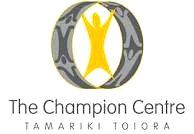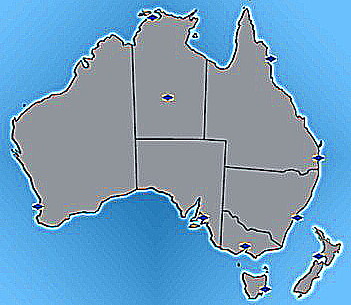 The Champion Centre is an early intervention centre in Christchurch, Aotearoa/New Zealand providing therapy service to infants and children with multiple developmental delays.
The Champion Centre is an early intervention centre in Christchurch, Aotearoa/New Zealand providing therapy service to infants and children with multiple developmental delays.
The Centre is administered by an independent charitable trust and funded by a combination of charitable donations and government grants. This article describes the services it offers and provides a brief history of the programme's origins and development.
The Champion Centre serves close to two hundred children at any one time, offering early intervention to infants and preschool children from all social and ethnic backgrounds who have been diagnosed with, or are at risk for, significant delays or deficits in at least two areas of functioning/systems (e.g., cognitive, motor, speech and/or language, social/interactional).
Children gain access to this free service by being referred by a paediatrician to a cross-agency group representing all of the Health and Education early intervention providers in Christchurch. This group makes offers to families in one or more services depending on family need and availability to places in each service. Children attending the service include those born extremely prematurely, those with pervasive developmental disorder and autism, those with a variety of syndromes, and those with global developmental delay of both known and unknown aetiology.
The programme works in partnership with the families and whānau[2] who play a vital role in the early intervention programme of their child with the support of the specialists who are either core therapy team members or contribute, together with parents, family and whānau to helping the child generalise their new learning in their everyday lives. Figure 1 is a schematic of the various team members at the Champion Centre and their positions in the Bronfenbrenner inspired model of service delivery.
A key feature of the model is the Family Support Team that works to ensure that families are as capable as possible of supporting their children to develop to their highest potential. This team consists of social workers (one of whom has special responsibility for Māori families) and psychologists who offer counselling, behaviour support and practical assistance. Parents also provide informal support and assistance to each other. This is made possible by the programme being centre-based; by the fact that groups of families attend programmes on a regular day and so get to know each other; and by the fact that there is time set aside (morning tea) in each programme session for families to engage with each other.
Please note that this is an introduction to an essay in the coming Issue 13 of the TAC Journal to be published in March 2012.
Dr. Susan Foster-Cohen
Director, The Champion Centre & Adjunct Senior Fellow, University of Canterbury
The Champion Centre
Private Bag 4708
C/- Burwood Hospital
Christchurch 8140
New Zealand
Phone: +64 3 383 6867
Fax: +64 3 383 6866
E-mail: This email address is being protected from spambots. You need JavaScript enabled to view it.
http://www.championcentre.org.nz
[1] 'Tamariki' is the Maori word for 'children' and 'toiora' means 'to raise up'.
[2] 'whanau' is a Maori word that translates loosely into 'extended family'. Maori are the indigenous peoples of Aotearoa/New Zealand who trace their family lines back before the arrival of Europeans.
 TAC Interconnections has launched in February 2012 a regional issue of the TAC Bulletin about support for babies, children and young people with disabilities and special needs.
TAC Interconnections has launched in February 2012 a regional issue of the TAC Bulletin about support for babies, children and young people with disabilities and special needs.

 Housing Options is a national charity that provides advice and support to people with their housing and support issues. It was established over 10 years ago to work with people with learning disabilities and their families and professional advisors.
Housing Options is a national charity that provides advice and support to people with their housing and support issues. It was established over 10 years ago to work with people with learning disabilities and their families and professional advisors.  The Champion Centre is an early intervention centre in Christchurch, Aotearoa/New Zealand providing therapy service to infants and children with multiple developmental delays.
The Champion Centre is an early intervention centre in Christchurch, Aotearoa/New Zealand providing therapy service to infants and children with multiple developmental delays.